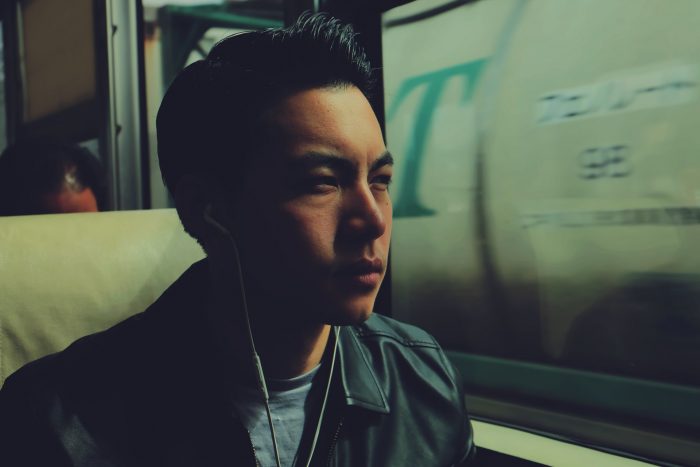A few years ago, I was working for a marketing agency as a writer.
I was fresh off returning from my Peace Corps life in China, and well, I learned a whole lot about language and culture. In fact, I was immersed in it daily as part of the volunteer program.
I fully integrated into the culture, learning just how much of my unhealthy American entitlement I had to let go of.
For someone who was determined to help change the world—the world changed me.
I was an English teacher for a vocational tourism school in Chongqing, China. I loved every minute of my time there, even the most challenging days. One of my biggest struggles as an expat was learning how to pronounce and remember the names of my students and colleagues. I was determined to learn the language so I could pronounce their names correctly.
It took me two years to learn conversational Mandarin, and through that time, it got easier and easier to say and remember the names of my colleagues and students, not to mention how to use the proper tones.
Having lived in China, I felt I was much more sensitive to the things that made up someone’s identity or culture. Learning the language was a huge aid in helping me better understand the people and culture of my host country. Not to mention the importance of name culture.
So, going back to the marketing agency, language became the topic of discussion one day.
On that particular day, I got into an argument with a coworker about how you pronounce the word phở, the Vietnamese dish many of us know and love.
“Why can’t you just say it like “phở,” he argued pronouncing the word like “faux.”
“Because that’s not how you properly pronounce it in Vietnamese,” I said, which was the truth.
I repeated the word phở to him, making the “ph” sound like an “f,” the “o” sound like “uh,” and creating a falling and rising tone in my throat to produce the proper pronunciation. I was irritated that Americans just couldn’t be bothered to honor someone or something’s existence by pronouncing a name or word properly.
“That is how it is pronounced in Vietnamese,” I said. Of course, I didn’t learn Vietnamese, I learned Mandarin Chinese, but being sensitive to the culture and language was now something of great importance to me. I was now paying way more attention to this simple aspect of honoring others by actually learning about what I didn’t know.
“Well, we’re not in Vietnam, we’re in America. We should pronounce it the American way.” I was instantly annoyed by this, almost offended—as if Vietnam were my own home.
I thought, it’s no wonder other cultures and people of different races and ethnicities don’t feel they belong in America. Especially when we have Caucasian people demonstrating such disdain inconvenience for proper name pronunciation.
A quick Google search and video tutorial can tell you how to say a word properly in less than 30 seconds.
Can we really not be bothered to learn how to pronounce a word in less than 30 seconds?
What is everyone’s problem with saying the name of anything—outside the English language—the way it’s meant to be said?
In my eyes, it’s a form of oppression we don’t pay attention to. We don’t feel like it matters to say someone’s name correctly. We would rather whine and complain about people being too sensitive, or correctness, or cultural appropriateness than admit we’re just being jerks.
Maybe people haven’t traveled enough. Maybe people come from communities that lacked diversity. Maybe they grew up in racist families. I don’t know the exact reason for this behavior. What I do know is it’s linked tightly to systematic racism. I also know everyone needs to do better at pronouncing names properly.
This happened to us in school and probably still does. Educators are famous for saying names wrong. I remember it vividly. My last name has been butchered by many since I can remember. While I do give people credit for trying, applauding those who do get it right on the first try, somehow, people will drop the “y” in my name, not bothering to ask if that’s how it is pronounced.
I’ve heard all variations of my last name before I’ve had to correct those who say it wrong.
Bran-ik. Bran-yikki. Brainy-ak. Those variations all come before the proper pronunciation: Bran-yick.
While it doesn’t bother me to hear my name mispronounced (because I’m used to it and I’m not intensely attached to the heritage in my name), I still feel there is apathy around pronouncing people’s names correctly.
Since this ridiculous argument with my coworker, which stood on the fumbling premise of, “Well, we’re in America, not Vietnam,” I’ve made it a point to say people’s names correctly. If I can’t figure out how to pronounce it on my own, I take three whole seconds to politely ask how a person pronounces their name. I even ask them how to spell it, so I can see it in my brain, or write it down. I really want to solidify my ability to pronounce it correctly.
I want to respect them.
When I used to drive for Uber, I always welcomed guests with names I had never seen, first asking them, “How do you pronounce your name?” They’d tell me and I’d follow with a compliment on how beautiful and unique their name was because a majority of the time their names were badass and/or beautiful. Sometimes they smiled, sometimes they didn’t.
I didn’t laugh at their name if my tongue found its presence there strange. I didn’t chuckle, reducing the person to smallness in my attempts to pronounce it properly. I did what a good person does. I listened and repeated their name back to them to show them I understood. I acknowledged their name as a part of their identity. I respected them.
I still do all of these things.
It’s astounding how such a compliment about someone’s name makes them feel significant, valued, and seen.
For years, I’ve noticed Americans mispronouncing names everywhere, more recently in feature films. In some of these movies, it’s a demonstration of American ignorance. Others, it’s written into the script.
I noticed this happening in the new “Mulan” movie. While most everyone else wouldn’t know any better about the appropriateness of pronouncing Chinese names correctly, I did. I listened to the characters in the movie slaughter the Chinese names of other characters. Two-hundred million dollars spent on this movie and they couldn’t teach the actors to say the Chinese names properly? They could give all the other characters Chinese names except for the person they call, in English, “Cricket?” It was highly annoying and very upsetting.
The more I watch movies like this, the more I notice these flaws, and the more it upsets me.
Maybe I’m being sensitive, but all I can think about are my family and friends in China looking at this movie and laughing at how the names have been butchered.
But this linguicism doesn’t stop with feature films or with the stranger you met in a coffee shop. Madam Vice President-Elect Kamala Harris had Fox News Anchor, Tucker Carlson, mispronounce her name repeatedly showing a lack of genuine care and respect for her as a human being. Political consultant Richard Goodstein reminded him it was pronounced “Comma-la.” Carlson remarked Goodstein’s correction as “Democratic Fragility.”
A statement hardly shocking coming from a white man.
Why do people do this?
Because people don’t care about other people. Because white people can’t be bothered to pronounce a name that is foreign to them. Because they have been told that it’s appropriate behavior. Because it’s a more silent form of racism and oppression that goes “seemingly” unnoticed.
It is linguistic discrimination. It puts our brothers and sisters of color down in places they don’t deserve to be in.
It is unnecessary. It needs to stop.
We shouldn’t be making BIPOC fit into certain boxes that accommodate our whiteness, our white comfort, or our systematic racism.
We should be making all BIPOC feel safe, loved, protected, and valued. We should not be ostracizing them in this way or any way. Period.
If you have a habit of mispronouncing people’s names or have just realized you’re guilty of mispronunciation, there are a few things you can do:
1. Forgive yourself for being insensitive or practicing linguicism.
2. Politely ask a person how they pronounce their name if you don’t know.
3. Don’t negotiate ways to say their name so it’s easier for you.
4. If they provide the option of using a nickname, by all means, use it.
5. When you are called out for saying a name wrong, accept the correction with grace. Don’t get defensive. Apologize and correct.
6. If you don’t know how to pronounce something, make it a point to learn.
7. If you’re having a difficult time saying it, be humble, and admit it.
8. Practice the pronunciation.
9. Write it down if it helps.
10. Be kind and respectful.
Names matter. Create a lasting impact. Pronounce names correctly.
~









Read 8 comments and reply